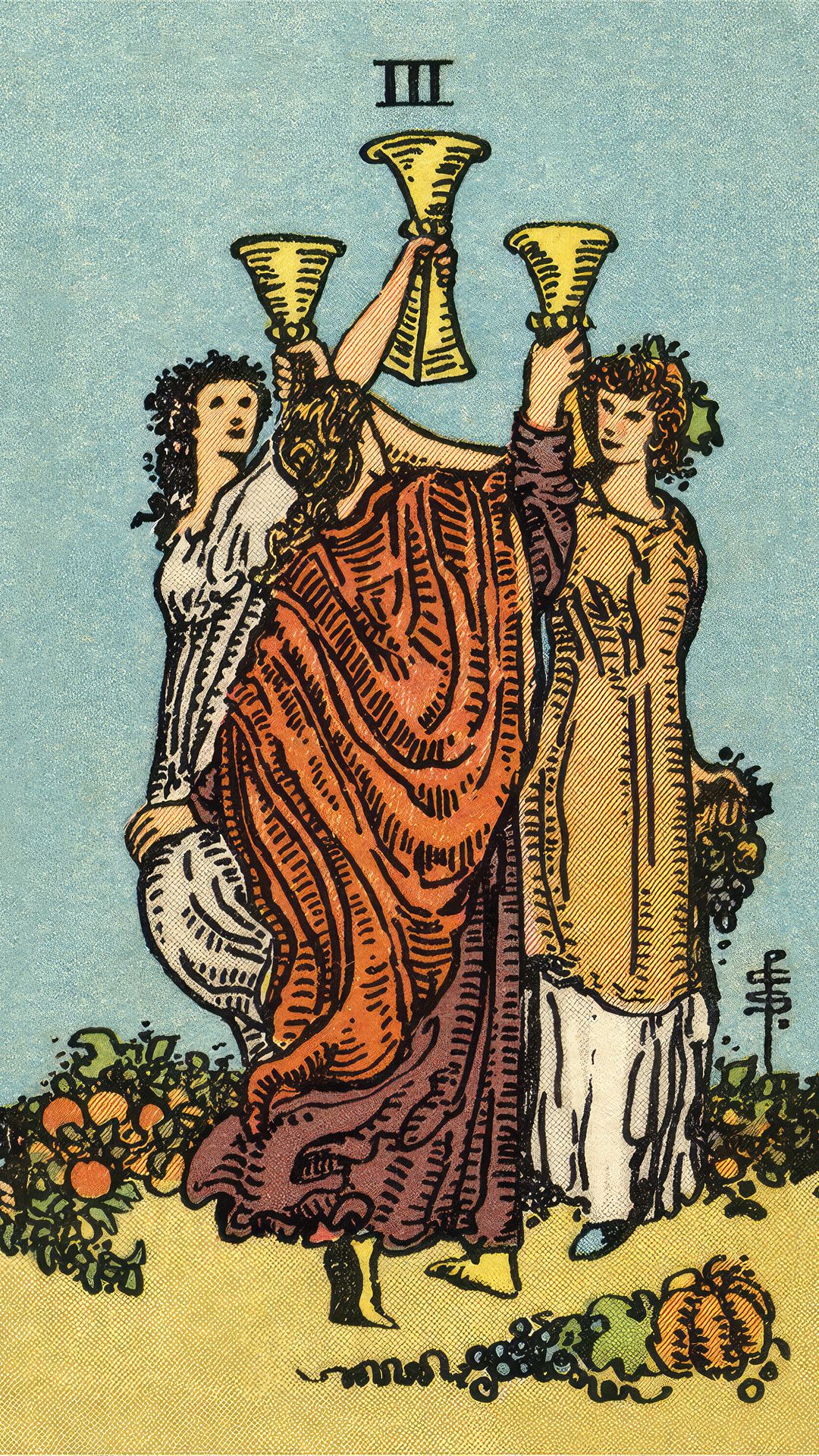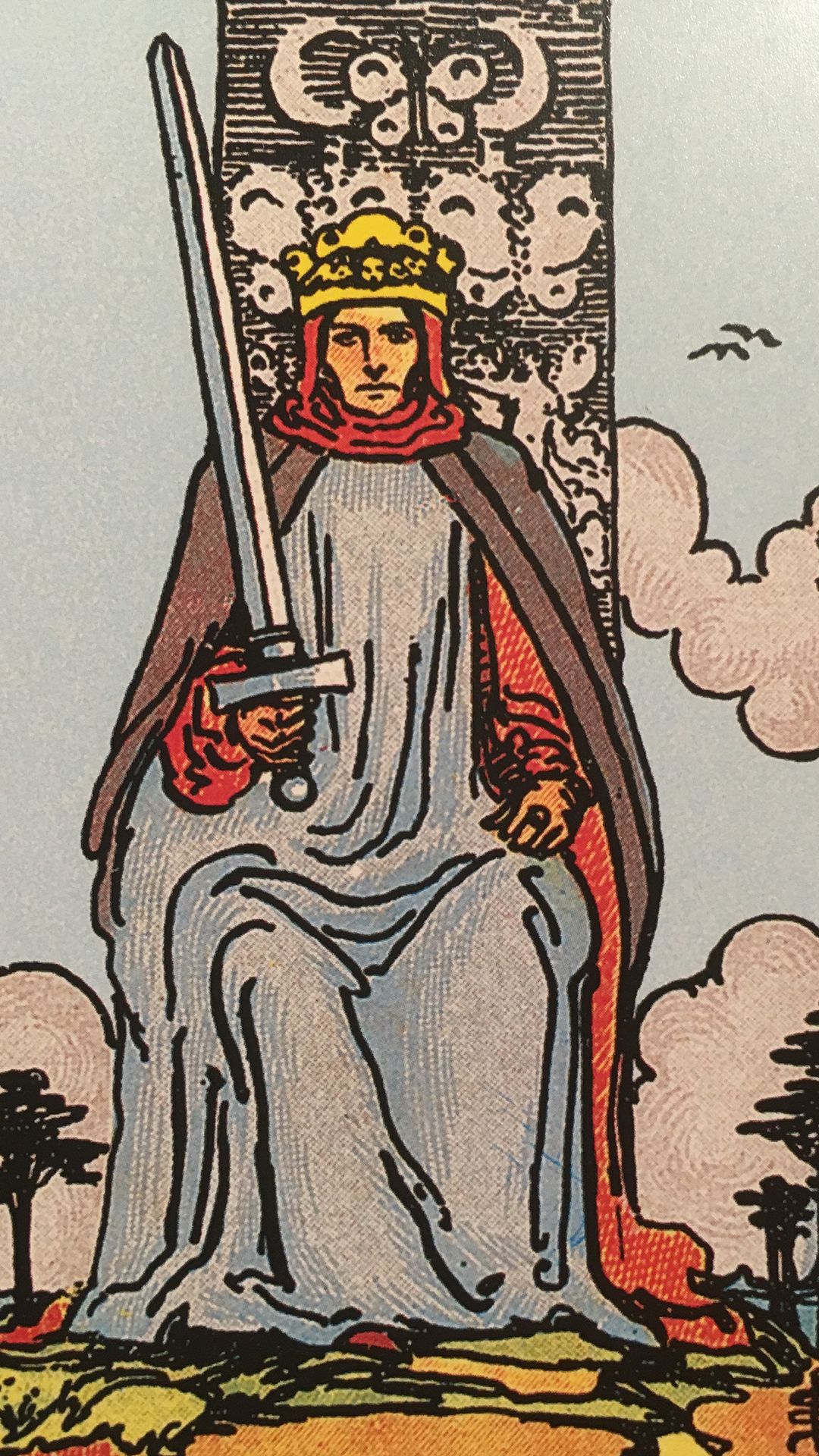Combination of card Three of Cups and card King of Swords
The King of Swords paired with the Three of Cups reveals someone who's intellectually sharp yet emotionally available to their inner circle. Their analytical nature actually enhances the group dynamic rather than dampening it. This person masterfully weaves together clear thinking and genuine warmth. Picture the wise mentor who drops knowledge over drinks, or the team leader who guides without micromanaging – that's this combination in action.
Combination of reversed card Three of Cups and card King of Swords
When the upright King of Swords meets the reversed Three of Cups, you're looking at someone whose razor-sharp logic has cut through their social connections. Their cold, calculated approach kills the vibe and creates tension wherever they go. Think of that boss who obsesses over spreadsheets while their team burns out right under their nose. Their intellectual prowess becomes a weapon of isolation rather than a bridge to others.
Combination of card Three of Cups and reversed card King of Swords
The reversed King of Swords with the upright Three of Cups shows someone who's lost in the social whirlwind, abandoning all rational thought. They're so caught up in good times that their judgment has completely checked out. Every choice gets made on pure impulse and emotion. It's like being stuck at a party that never ends – until reality crashes in with brutal clarity the next morning.
Combination of reversed card Three of Cups and reversed card King of Swords
Both cards reversed paint a picture of complete mental and emotional chaos. Logic has abandoned ship, relationships are crumbling, and this person is wandering through life in a complete daze. They can't trust their thoughts or their feelings, leaving them paralyzed when it comes to making any real decisions. This combination often surfaces during those rock-bottom moments when everything you once relied on has fallen apart.

